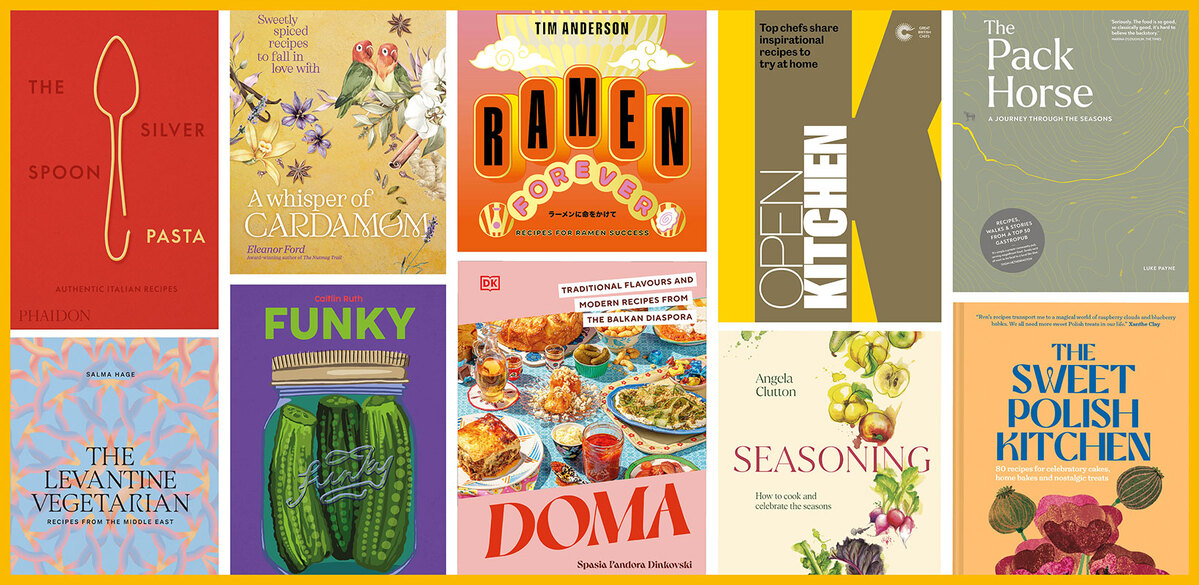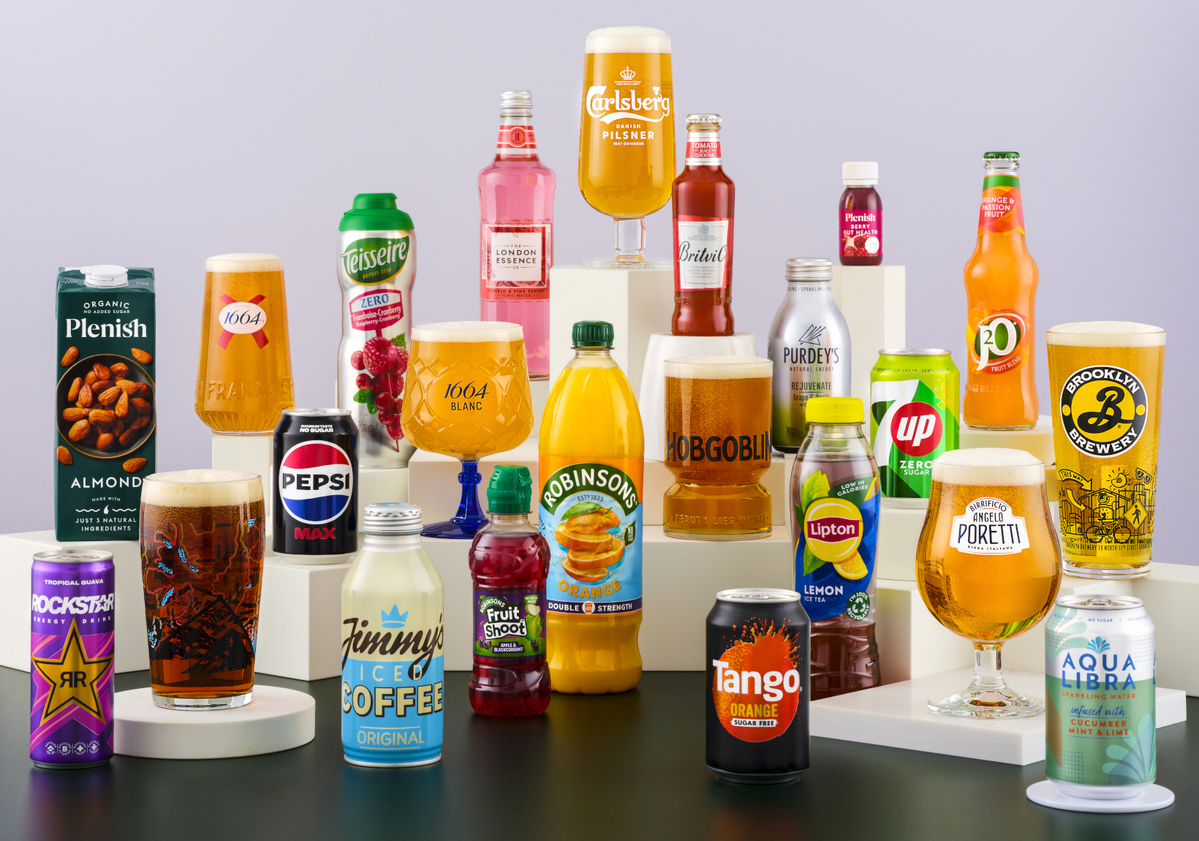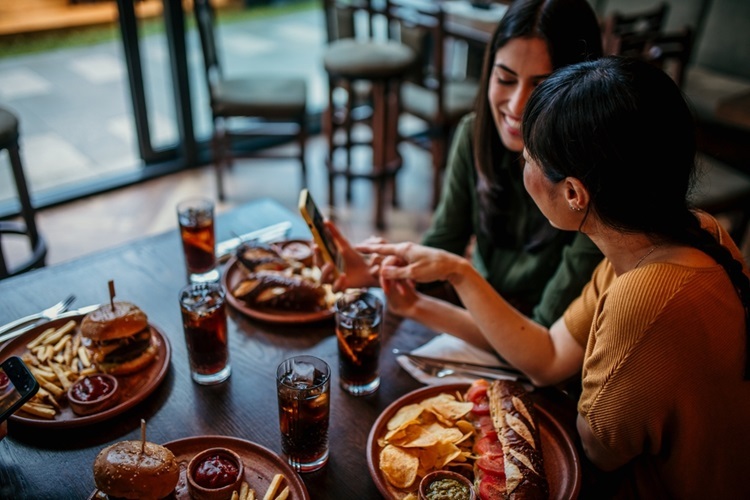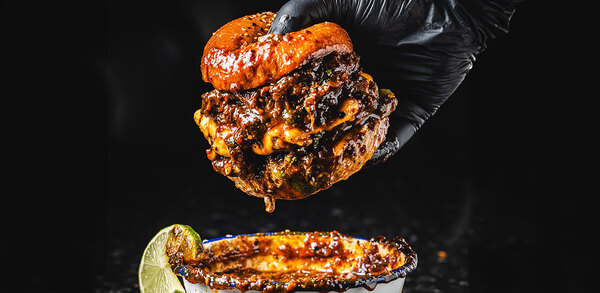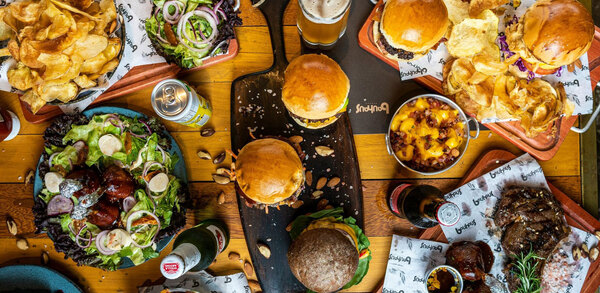The best cookbooks for chefs in 2024
If you’re looking to revitalise your menu, master a new skill or are searching for culinary inspiration, this is the list for you.
These are some of the best recipe books released in 2024 (so far) for the culinary-competent. With beautifully-bound explorations into seasonality, Polish baking and guides on how to achieve ramen mastery, you will never be short on sources of inspiration again.
Seasoning by Angela Clutton
 Each section of Clutton’s third recipe book is devoted to a season. This invaluable encyclopaedia details the best produce for each, offering advice on how to treat ingredients properly and ways of how to get the most out of them. For example, for summer stone fruits, Clutton breaks down how to choose the best on offer (choose peaches that are firm with a little give) and where to store them (out of the fridge if they need to soften; in the fridge if they’re ready to eat).
Each section of Clutton’s third recipe book is devoted to a season. This invaluable encyclopaedia details the best produce for each, offering advice on how to treat ingredients properly and ways of how to get the most out of them. For example, for summer stone fruits, Clutton breaks down how to choose the best on offer (choose peaches that are firm with a little give) and where to store them (out of the fridge if they need to soften; in the fridge if they’re ready to eat).
This is a reminder to not spend your year chasing your favourite produce or to mourn its absence. Rather, it’s a chance to explore a wide array of ingredients, with a reminder to stay anchored to the earth and environment rather than shoehorning produce into seasons in which they don’t belong. Seasoning is as much a philosophy as it is a cookbook, encouraging even the most skilled chefs to reassess their approaches to their ingredients and inventories.
Murdoch Books, £30
Read more here
Cook filo tart with mixed greens and feta from Seasoning here
The Levantine Vegetarian by Salma Hage
 The Levantine Vegetarian is a lesson in mastering the condiment. Without relying on meat to impart flavour, Salma Hage shows off the broad spectrum of flavours of the Levant, offering an education in how to use spices, sauces and preserves to their full potential. She displays not only the visual appeal of the region’s food (Levantine cuisine sets a high bar for “eating the rainbow”), but also the versatility of its ingredients, using similar building blocks across dishes which result in unrecognisably different final outcomes. This is a book to expand any chef’s seasoning repertoire, for vegetarians and meat-eaters alike.
The Levantine Vegetarian is a lesson in mastering the condiment. Without relying on meat to impart flavour, Salma Hage shows off the broad spectrum of flavours of the Levant, offering an education in how to use spices, sauces and preserves to their full potential. She displays not only the visual appeal of the region’s food (Levantine cuisine sets a high bar for “eating the rainbow”), but also the versatility of its ingredients, using similar building blocks across dishes which result in unrecognisably different final outcomes. This is a book to expand any chef’s seasoning repertoire, for vegetarians and meat-eaters alike.
Phaidon, £29.95
Read more here
Cook braised chickpeas with sumac greens from The Levantine Vegetarian here
Sweet Polish Kitchen by Ren Behan
 Though you might be unfamiliar with specific bakes from Poland – often called the ’meeting point’ between East and West Europe – many featured in Behan’s cookbook will feel comfortingly familiar. Often satisfyingly simple, the featured delicacies, such as stefanka, a chocolate and honey layer cake, or katarzynki, traditional gingerbread cookies, are nevertheless steeped in cultural history, for which Behan gives a whistlestop tour of often overlooked Polish cookery. For example, in her recipe for Krakowian-style bagels (obwarzanek Krakowski), she describes how this "bagel-pretzel" hybrid has been sold by street vendors for more than 600 years and even holds protected geographical indication or PGI status. The book uses ingredients that any cook will already have in their kitchen, making it ideal for chefs looking to broaden their repertoire of baked goods.
Though you might be unfamiliar with specific bakes from Poland – often called the ’meeting point’ between East and West Europe – many featured in Behan’s cookbook will feel comfortingly familiar. Often satisfyingly simple, the featured delicacies, such as stefanka, a chocolate and honey layer cake, or katarzynki, traditional gingerbread cookies, are nevertheless steeped in cultural history, for which Behan gives a whistlestop tour of often overlooked Polish cookery. For example, in her recipe for Krakowian-style bagels (obwarzanek Krakowski), she describes how this "bagel-pretzel" hybrid has been sold by street vendors for more than 600 years and even holds protected geographical indication or PGI status. The book uses ingredients that any cook will already have in their kitchen, making it ideal for chefs looking to broaden their repertoire of baked goods.
Pavilion Books, £26
Read more here
Cook wild blueberry and almond babka loaf from Sweet Polish Kitchen here
Funky by Caitlin Ruth
 The ninth in Blasta Books’ series of recipe books gives a platform to unpublished voices within the Irish food scene. Funky is a dip into the world of fermentation, where Caitlin Ruth explores the multitudes held within these microbiome-loving jarred foods, believing that “there are few dishes that can’t be improved by the addition of a pickle”. Whether with crunchy classic dill pickles, zingy pickled asparagus or the fiery kick of carrot and chilli escabeche, Ruth shows how a simple splash of brine can elevate meals from bland to brilliant. Funky offers a lucky dip of ways to make any dish exactly that, inventive methods of preserving seasonal favourites (fermented watermelon rind sounds unexpectedly delicious) as well as sometimes eyebrow-raising brined combinations.
The ninth in Blasta Books’ series of recipe books gives a platform to unpublished voices within the Irish food scene. Funky is a dip into the world of fermentation, where Caitlin Ruth explores the multitudes held within these microbiome-loving jarred foods, believing that “there are few dishes that can’t be improved by the addition of a pickle”. Whether with crunchy classic dill pickles, zingy pickled asparagus or the fiery kick of carrot and chilli escabeche, Ruth shows how a simple splash of brine can elevate meals from bland to brilliant. Funky offers a lucky dip of ways to make any dish exactly that, inventive methods of preserving seasonal favourites (fermented watermelon rind sounds unexpectedly delicious) as well as sometimes eyebrow-raising brined combinations.
Blasta Books, £13
Read more here
Cook pickled chard stems from Funky here
The Pack Horse by Luke Payne
 Think you know gastropubs? Luke Payne’s debut cookbook The Pack Horse features many of the dishes created at his identically-named Peak District outpost, and brings a fresh, inventive approach to this well-trodden genre. Combining inspiration from North Africa, the Middle East and India with signature dishes like his rack of lamb, stopping by squirrel ragu pappardelle on the way, Payne’s same open-minded approach shown on these pages earned him 18th place in the Top 50 Gastropub list and a collection of rave reviews. Despite having no experience in high-end restaurants before establishing the Pack Horse, the likes of the Financial Times, The Sunday Times, Michelin and The Caterer have praised Payne’s unconventional approach to cooking. Some of the same dishes celebrated in these reviews also appear in the cookbook, such as asparagus with poached egg served with a Café de Paris emulsion.
Think you know gastropubs? Luke Payne’s debut cookbook The Pack Horse features many of the dishes created at his identically-named Peak District outpost, and brings a fresh, inventive approach to this well-trodden genre. Combining inspiration from North Africa, the Middle East and India with signature dishes like his rack of lamb, stopping by squirrel ragu pappardelle on the way, Payne’s same open-minded approach shown on these pages earned him 18th place in the Top 50 Gastropub list and a collection of rave reviews. Despite having no experience in high-end restaurants before establishing the Pack Horse, the likes of the Financial Times, The Sunday Times, Michelin and The Caterer have praised Payne’s unconventional approach to cooking. Some of the same dishes celebrated in these reviews also appear in the cookbook, such as asparagus with poached egg served with a Café de Paris emulsion.
Meze Publishing, £35
Read more here
Cook curried goat pie from The Pack Horse here
Open Kitchen by Great British Chefs
 If you’ve ever wanted to take a peep behind the doors of some of the most celebrated chefs’ establishments, now’s your chance. From Endo Kazutoshi’s gotō udon for his 20-course omakase menu to Kerth Gumbs’ parsnip cake with salted Baileys custard, these are not recipes for the faint-hearted, but they make for a fantastic challenge to elevate your cookery skills to match the chefs currently at the top of their game. Impressively intricate entries include Simon Rogan’s recipes for Musselburgh leeks, quinoa and assorted sorrels and a Marans egg yolk cooked in chicken fat. After all, you don’t get three Michelin stars for beans on toast.
If you’ve ever wanted to take a peep behind the doors of some of the most celebrated chefs’ establishments, now’s your chance. From Endo Kazutoshi’s gotō udon for his 20-course omakase menu to Kerth Gumbs’ parsnip cake with salted Baileys custard, these are not recipes for the faint-hearted, but they make for a fantastic challenge to elevate your cookery skills to match the chefs currently at the top of their game. Impressively intricate entries include Simon Rogan’s recipes for Musselburgh leeks, quinoa and assorted sorrels and a Marans egg yolk cooked in chicken fat. After all, you don’t get three Michelin stars for beans on toast.
Clearview Books, £25
Read more here
Cook Chantelle Nicholson’s harissa-roasted cabbage, miso aioli, pickled shallots, crispy chickpeas from Open Kitchen here
A Whisper of Cardamom by Eleanor Ford
 This is a book for bakers looking to spice up their game. Where technical skills have been mastered, Ford suggests a carousel of spices for unexpected places to get bakers’ creativity rolling. Ranging from the eponymous cardamom – the “party girl” of ingredients – through to saffron and stopping by cumin and coriander on the way, Ford serves up an aromatic investigation. Flavour nerds can get fully involved in the nitty-gritty of each spice through the mini profiles provided, as well as receiving storage and pairing advice. If this sounds like a spicy sensory overload, Ford seamlessly guides the reader by dividing chapters by flavour (giving them characteristics such as bright and zippy or dark and spicy) and provides easy to understand pie charts explaining how to fully unlock spices’ whole potential.
This is a book for bakers looking to spice up their game. Where technical skills have been mastered, Ford suggests a carousel of spices for unexpected places to get bakers’ creativity rolling. Ranging from the eponymous cardamom – the “party girl” of ingredients – through to saffron and stopping by cumin and coriander on the way, Ford serves up an aromatic investigation. Flavour nerds can get fully involved in the nitty-gritty of each spice through the mini profiles provided, as well as receiving storage and pairing advice. If this sounds like a spicy sensory overload, Ford seamlessly guides the reader by dividing chapters by flavour (giving them characteristics such as bright and zippy or dark and spicy) and provides easy to understand pie charts explaining how to fully unlock spices’ whole potential.
Murdoch Books, £26
Read more here
Cook nutmeg cake from A Whisper of Cardamom here
Ramen Forever by Tim Anderson
 Despite being one of the most popular Japanese culinary exports, ramen is a notoriously difficult dish to master. The key, according to 2011 MasterChef winner Tim Anderson, is in the noodles. The one used in this complicated staple, according to Anderson, must be a specific type, characterised by alkaline salts known as kansui. Even accomplished chefs can learn a thing or two from Anderson’s ‘ramen manifesto’ and his forensic explanation of the five key elements making the perfect ramen – the broth, tare, noodles, oil and toppings. He also provides useful information on equipment and specific ingredients to help cooks achieve next-level ramen mastery. After covering the classics, Anderson dips into some more radical suggestions, including Christmas turkey ramen with pickled cranberries or leftover Nando’s ramen, proving there is truly a ramen for every occasion.
Despite being one of the most popular Japanese culinary exports, ramen is a notoriously difficult dish to master. The key, according to 2011 MasterChef winner Tim Anderson, is in the noodles. The one used in this complicated staple, according to Anderson, must be a specific type, characterised by alkaline salts known as kansui. Even accomplished chefs can learn a thing or two from Anderson’s ‘ramen manifesto’ and his forensic explanation of the five key elements making the perfect ramen – the broth, tare, noodles, oil and toppings. He also provides useful information on equipment and specific ingredients to help cooks achieve next-level ramen mastery. After covering the classics, Anderson dips into some more radical suggestions, including Christmas turkey ramen with pickled cranberries or leftover Nando’s ramen, proving there is truly a ramen for every occasion.
Hardie Grant, £26
Read more here
Cook roast pork and chicken chintan from Ramen Forever here
Doma by Spasia Pandora Dinkovski
 This exploration of Spasia Pandora Dinkovski’s own Macedonian-British heritage is an encouragement for cooks to look to their own heritage for inspiration. In Doma (meaning home) Dinkovski, the founder of Mystic Burek in London, continues her mission to revitalise British interest in Balkan cuisine, a delicious area of gastronomic tradition that combines flavours from the Mediterranean with eastern and southern Europe.
This exploration of Spasia Pandora Dinkovski’s own Macedonian-British heritage is an encouragement for cooks to look to their own heritage for inspiration. In Doma (meaning home) Dinkovski, the founder of Mystic Burek in London, continues her mission to revitalise British interest in Balkan cuisine, a delicious area of gastronomic tradition that combines flavours from the Mediterranean with eastern and southern Europe.
Dinkovski is upfront about her recipes being interpretations of the food of her ancestors while introducing a British audience to flavours and combinations they may be unfamiliar with. She suggests replacements for less readily available ingredients; for example, the candied pumpkin in the sweet condiment slatko-tikva is replaced with preserved squash. Through fusion recipes that combine North Macedonian staples with British ingredients, such as her cottage cheese base of proja – a denser, less sweet version of cornbread popular in Serbia, Bosnia and North Macedonia – Dinkovski continues the culinary legacy of North Macedonia in a modern context.
DK, £22
Read more here
Cook kadaif banoffee pie from Doma here
The Silver Spoon – Pasta
 The latest in the prestigious Silver Spoon recipe series, this dedication to pasta is an essential addition to any chef’s collection. It’s a deep-dive into one of Italy’s most cherished, popular and often contentious foodstuffs. Reflecting its endless possibilities for reinvention, there are more than 300 recipes of pristinely photographed pasta, accompanied by detailed instructions and additional information explaining why certain shapes are the most appropriate in specific dishes. The volume also offers a short history of pasta, explaining its development over time, the cultural history of ‘al dente’, and why it was once deemed a luxury item.
The latest in the prestigious Silver Spoon recipe series, this dedication to pasta is an essential addition to any chef’s collection. It’s a deep-dive into one of Italy’s most cherished, popular and often contentious foodstuffs. Reflecting its endless possibilities for reinvention, there are more than 300 recipes of pristinely photographed pasta, accompanied by detailed instructions and additional information explaining why certain shapes are the most appropriate in specific dishes. The volume also offers a short history of pasta, explaining its development over time, the cultural history of ‘al dente’, and why it was once deemed a luxury item.
Phaidon, £29.95
Read more here
Cook reginette with langoustines from The Silver Spoon – Pasta here



